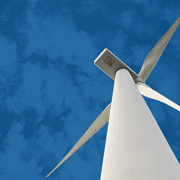While Spain seems to get all the publicity and all the plaudits from the European PV industry, Portugal’s efforts to establish a thriving solar future seem to be very much in the shadow of its big next-door neighbour.
Even though the country has one of the highest solar irradiations available in Europe and has a high potential for growth, the PV market in Portugal is still medium-sized and has grown timidly over the past few years, mainly due to several large-scale PV plants. However, the European PhotoVoltaic Industry Association (EPIA) believes that if Portugal sets up an appropriate support scheme for the widespread use of PV, its market could reach up to 500 MW by 2013.
Ironically, however, at a time when Portugal could take its rightful share of the market uncertainty surrounding government incentives for cleantech investment may halt deals, for which the private equity industry has raised €8.4bn ($10.4bn) in Europe since 2007.
Spain has begun to discuss a reform of its energy sector, including proposals to cut solar energy subsidies. Debate had mounted in Spain over its feed-in tariffs, which have been the most popular renewable energy investment incentive in Europe.
The move could affect companies’ profitability and therefore returns made by private equity owners. Italy and Germany have planned to reduce their feed-in tariffs. Germany – which has provided some of Europe’s most generous renewable energy subsidies – is to deduct up to two per cent more from the country’s feed-in tariffs depending on energy capacity this year.
Leading accountancy firm Ernst & Young said similar changes could spread to other European countries, including Portugal, as they struggle with debt burdens. It said countries with the greatest debt exposure in the eurozone could find their renewable programmes more difficult to implement without adjusting incentive packages.
There was more bad news for Portugal from Ernst & Young in its recently-published ‘renewable energy attractiveness index’. While China and the United States topped the table with 69 points each, with Germany following with 64 points, Greece, Spain and Portugal lost points. This has been
partly based on worsening capital markets. Spain sits in eighth place, Portugal is in 10th place and Ireland and Greece take 12th place with Australia and Sweden.























